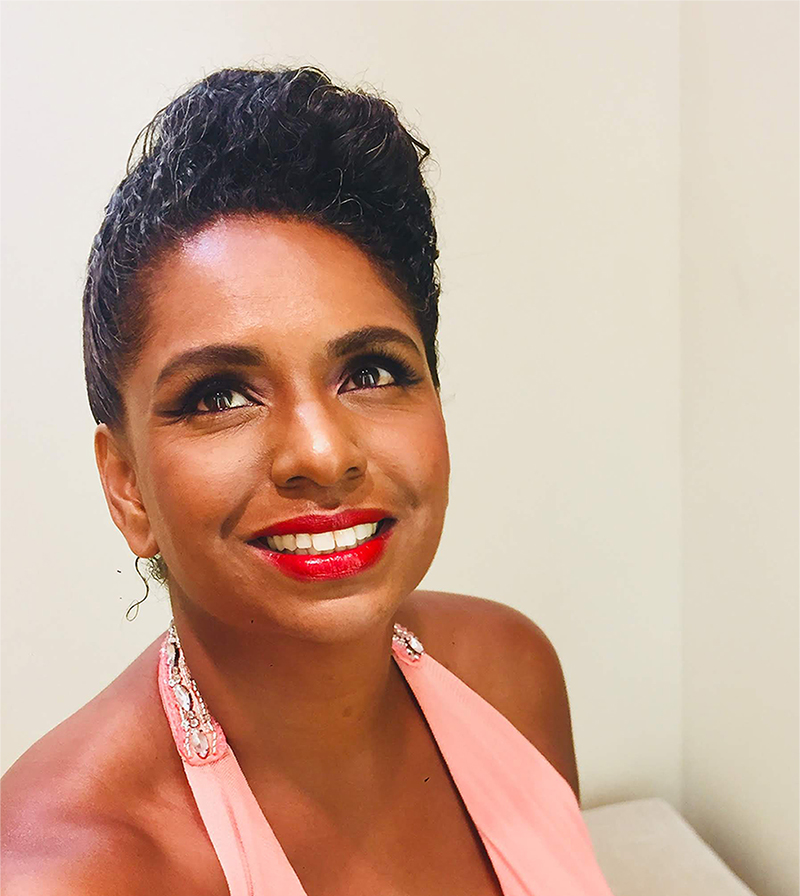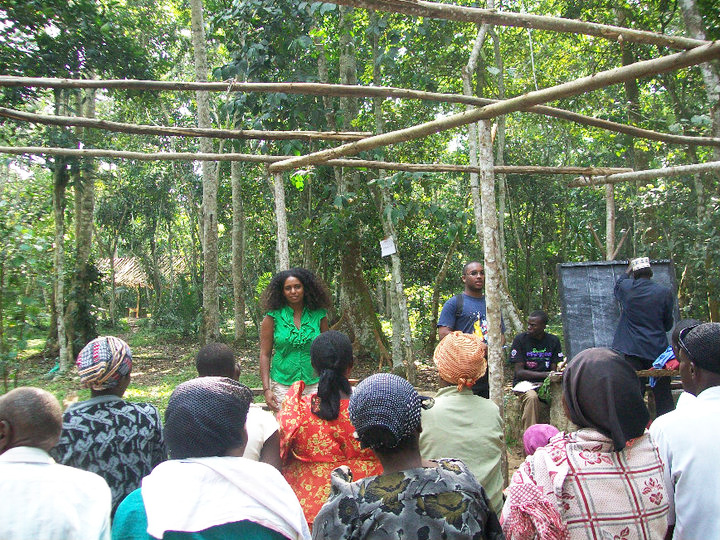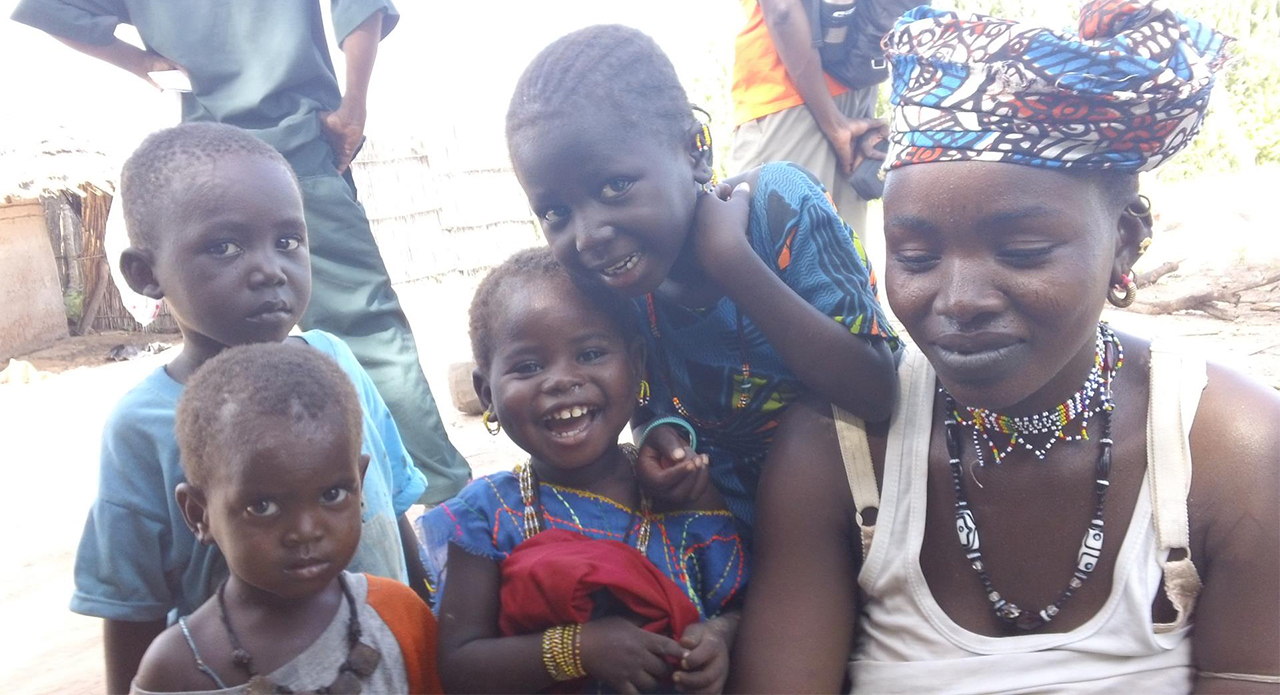Interview by Chief Editor
April 2020 11 min read

Sonita Singh based in New Orleans is a principal investigator for research in Epidemiological, Criminal Justice, and Geography-based Vulnerability and Risk studies. As one of the main features in our TwentyEightyFour interview series, Dr. Singh shares her perspective from a leadership vantage point on areas of communities, culture, ecological research, Big Data, and business challenges in nation-states of emerging economies. She also discusses her work as founder of I-STARRT, on international technology transfer, as well as collaborations with prominent establishments in academia.
(VC) New Orleans has a long rich history especially in socio-economic narratives, how much do you get involved with the community?
(Sonita) New Orleans seems like a very open society until you have the opportunity or desire to truly embed within its society and intertwine with the city’s complex socio-ecologies. I came to New Orleans as a child, 18 years old as a Cellular and Molecular biology/Pre-Med student at Tulane University, and quickly found myself wondering off-campus, and soon connected to several of the community’s longstanding cultural and historical leadership. I became highly active in community-driven grassroots organizations, specifically those that took to self-empower and intentionally drive black and brown communities toward more expanse collective goals. I also connected deeply to the culture-bearers of the New Orleans music community. I began through dancing for two profoundly influential music families, with Casa Samba, a local samba school created to embrace and protect neighborhood children from the violence and murder epidemic that was raging through the city at the time, and with Bamboula 2000, a musical collective created to honor the Bamboula rhythm that connected slaves from multiple tribes, regions, and tradition centered in Congo Square, the only space where slaves were allowed to dance in America.
What I found over time is that, while people who visit or move to New Orleans have one experience of culture and expression in the city, many of those who produce culture have a very different experience; often one that does not receive the acknowledgment and economic benefit that the literal blood, sweat, and tears spent could and should confer. It is a passion that is capitalized on by outsiders, vultured, and pirated. This environment prepared me well. Since my Ph.D. from Tulane School of Law specializing in International Development, I have re-focused my understanding and analysis of our city’s resilience and vulnerability towards developing mechanisms for fostering comprehensive equity, accelerating economic, workforce and personal development, while recognizing decades to centuries of aggressively exclusionary policies and practices from federal down to neighborhood-level aggressions toward black and brown people. I chose to be rooted in a New Orleans where communities take care of their children, feed their hungry, freely share their resources, engage their elders, and thrive economically. Being involved in this work is how I earn my place here, presence is not enough.

Photo courtesy of I-STARRT
Even though gun violence, severe poverty, and exposure to trauma was an intrinsic part of my childhood, I assume the role of an automatic outsider when hoping to address a problem or alleviate an issue for a population that is in any way vulnerable. I adamantly refuse to root in self when considering how populations generate their understanding and behaviors around it.
My self-awareness roots in actively respecting endogenous intelligence, and harmonizing the dynamic realities that push populations to their breaking point with the mechanisms to effect change that is harmonious within their societal norms
(VC) What does Self Awareness mean to Sonita Singh and has it evolved as you apply findings from Criminal Justice research?
(Sonita) Broadly, I research the drivers and impacts of vulnerability. That work has embraced child soldiers in Uganda, post-disaster populations in Haiti, sex workers with HIV, incarcerated and foremost incarcerated populations, homicide and gunshot victims in New Orleans, children exposed to trauma or extreme disease burden, and others. This calling requires me to be extraordinarily flexible in the conceptualization of ‘the truth’ when considering a problem or supposed cure. Even though gun violence, severe poverty, and exposure to trauma was an intrinsic part of my childhood, I assume the role of an automatic outsider when hoping to address a problem or alleviate an issue for a population that is in any way vulnerable. I adamantly refuse to root in self when considering how populations generate their understanding and behaviors around it. I root rather in the construct of all populations behaving like a ‘rational actor’. This stance recognizes that people are not ignorant of their problems and their origins, rather they address them in the ways that are societally and culturally appropriate and rational to them. For example, New Orleans murder rate makes it one of the top 50 most murderous cities in the world, but those youths who are often the shooters and victims can explain the circumstances of their shooting incident with great thoughtful detail, explaining why it was considered coherent and necessary given their own micro-societal norms and mechanisms of social control. If I negate this knowledge base in addressing gun violence, I effectively prove that I am not capable of producing interventions that may even approach the core issues, which are often multi-systemic, institutional, and slow or expensive to change.
My self-awareness roots in actively respecting endogenous intelligence, and harmonizing the dynamic realities that push populations to their breaking point with the mechanisms to effect change that is harmonious within their societal norms. Sustaining change is a powerful goal but requires being able to speak truth to the full complexity of our global issues.
(VC) Observing the rising despondency of political movements in parts of the world, as a female leader in your field, are you more critical about your own career as a woman or more optimistic given the trajectory of the present times?
(Sonita) As of April 16th, 2020, the countries with the lowest infection and mortality rates are Iceland, Taiwan, Finland, Germany, New Zealand, Norway, Denmark. These countries have one thing in common; female leadership. Similarly, female-lead African countries, particularly in post-conflict countries, have demonstrated dramatic turnarounds in their democracies, social policies, and development impacts. The question is why? We may respond with a counter-question: what does it take for a woman to become a leader? What kind of barriers does she have to surmount to be considered as equal to male counterparts, given women account for 10-20% of global leadership? What does she have to demonstrate to become the natural choice for men and women alike.
I believe transparency, accountability along with empathy, humanity are commonalities with female leadership. But additionally important is the willingness to follow facts, logic, and diplomacy over ego, power, or control. Accounting for the intersectionality of being black and female in predominately white male spaces, I am confident in my capabilities to make substantive changes in the realms I choose to impact. I have little patience for those who do not think I belong at the table or should not lead the table, unless they have an equal vision, skill, and motivation. If or when they demonstrate these traits, they must then demonstrate the ability to push agendas and policies that address disparate populations. This is a rarity, most tables I sit at are tone-deaf and color-blind, persistently committing sins of omission rather than commission.
We are rapidly recognizing that by addressing trauma and the long-lasting impacts adverse childhood events (ACES), we are giving the children a fighting chance to avoid the negative impacts on brain development, socio-behavioral effects, epigenetic effects, and chronic disease risk.

Photo courtesy of I-STARRT
(VC) Hows does your current work at I-STARRT, LSU School of Public Health, and its relationship with climate change align with any Sustainable Development Goals?
(Sonita) The vision for I-STARRT is to leverage information for development, using both the extraordinary leap-frogging capacity of big data to understand large complex systems and the endogenous knowledge from communities. We want to use these to actively working towards the sustainable development goals and then thrive beyond them. Using community-engaged quantitative and qualitative research, I-STARRT takes a complex dynamic systems approach to define the pathways leading to a vulnerable state and offer those evidence-based pathways leading away from those conditions. I-STARRT partners with communities to deepen their understanding of how their local and global livelihood strategies are often compromised and provide a range of research methods and evidence-based interventions to inform those communities’ ability to develop local guidance that reinforces sustainable mechanisms for development. This approach applies to climate change and other Sustainable Development Goals.
My work as Assistant Professor at Louisiana State University School of Public Health, Department of Community and Behavioral Sciences, is also spatially-focused but primarily dedicated to the very important issue of behavioral health in Medicaid-eligible children. We are rapidly recognizing that by addressing trauma and the long-lasting impacts adverse childhood events (ACES), we are giving the children a fighting chance to avoid the negative impacts on brain development, socio-behavioral effects, epigenetic effects, and chronic disease risk This work I believe is the most likely to interrupt the school to prison pipeline.
(VC) Many critics may counterargue that locally born ideas are not really local because the African continent is in her second economic scramble, and many multinational companies are already contributing to the continent. What are your general thoughts on this?
(Sonita) This is an important question. Had African countries not been neo-colonized, particularly through the mechanisms of structural adjustment and economic manipulation by external multilateral agencies, and been allowed to proceed as fledging governments and self-direct, we would not need to consider the insidious manifestations of neo-liberalist capitalism implicit in most of Africa’s trade and economic flows. For this reason, your assertion is correct, many ideas and solutions – often those promulgated by international aid organizations are oftentimes based in the economic framework of the inherently imbalanced dichotomy of the global north and south. Where then is the ‘solution’ if the overall flow of resources of goods and services is inherently rigged. While the movement towards one African currency and an African Union are the beginnings of an autonomous continent, the core foundational ethos driving global trade needs to be redressed within this new Africa. Can Africa be insular for a period and generate its own needs?
This type of thinking leads to paralysis, I believe. From our standpoint, I-STARRT is looking at the extraordinary power of big data to allow vision and forethought into the current and potential flows of local and global resources. We want to spark thoughts on how they might be used to sustainably to improve community-level quality of life. A step further would be to bring the mechanism of production closer and closer towards community use and community leadership. We can make more powerful decisions off of the data we see with our devices every day. I envision a type of empowerment where I and others determine how my individual, community, and country’s purchasing and production power is being used for my betterment and for those around me.
(VC) At this stage of your professional milestones and accomplishments, If you could collaborate with any brand or public figure in business who would it be and why?
(Sonita) I love data, streams, and streams of data. I love to look at how populations move, integrate into societal and technological systems, and how those morph into new, emergent organizations and produce new realities for millions. I believe this is an important part of our evolution as a society and truly significant time for Africa to shift the global society. For that reason, I am partial to work with African universities, to co-create the platforms, methods, analyses, and policies with my colleague that use technology to shift the balance of power, from companies that troll your data to you trolling your data and making your life and efforts more powerful and efficient.
(VC) Acknowledged as a pioneer in your sector, What can the world expect for Sonita Singh within the next few years?
(Sonita) I suspect a number of offshoots from these early projects will morph into Institutes of learning, operationalizing new findings, providing platforms for new innovators and entrepreneurs, and giving individuals the tools to capitalize on a stream of innovations. I am looking for African countries to lead the world in tech innovations that lead to community transformation, and address the SDG in their own way. Capitalism is cool, economic gain is fine, but communities that improve in the way they choose, empowered with the tools to lead that choice, look cool and fly the whole way; that’s the goal.